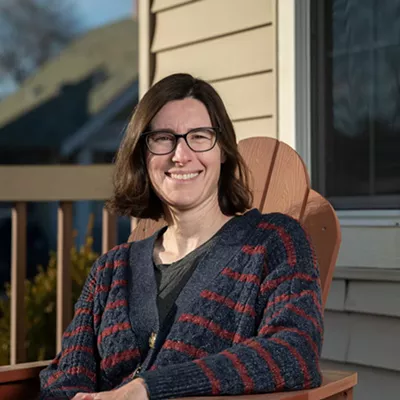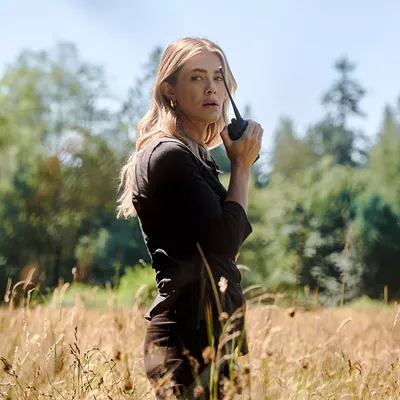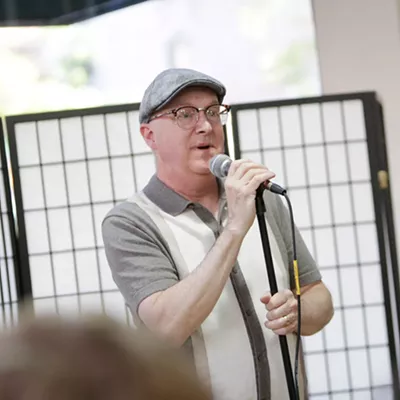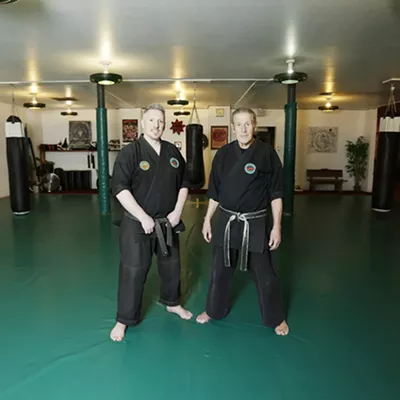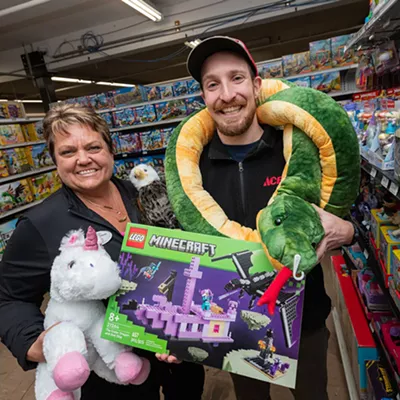Shortly after the birth of her first child, Jessica E. Johnson received an unexpected e-mail from her mother. Attached to it, she writes in her recently published memoir, were "a couple of scanned Polaroids and two scanned letters."
The family photos her mother sent were partly intended to elicit comparisons to the new mother as an infant and the baby she now held in her arms. ("Different nose, same mouth.") The contemporaneous handwritten letters — one from Slick Rock, Colorado, in 1979, the other from Granite, Oregon, in 1980 — represented just a sliver of a huge body of correspondence that Johnson's mother had produced during a nomadic and austere period of their lives when the family was moving from one remote mining community to another.
As Johnson recalls in Mettlework: A Mining Daughter on Making Home, letters like these were her mother's way of "writing herself out of the immediate situation," a method of both romanticizing and transcending hardship. Hence it wasn't just the Polaroids that traced parallels between the generations. Having since become a poet and creative writer, Johnson saw some of her mother's epistolary motivations mirrored in her own impulse to write.
"She read and wrote all the time," Johnson says from her home in Portland. "She enjoyed finding language for things. And the culture of books and reading and writing was very much a part of the family on her side."
Writing was therefore something that Johnson herself came to view as "this supercharged and nearly magical thing — the idea that wherever you are, you can reach out through words and communicate," she explains.
"I sort of got it into my head pretty early that no matter where I was, I could write my way toward where I wanted to be and it often would work. It did seem like the way into the world, the way... to bridge this isolation that was always such a problem."
Isolation, both physical and figurative, would define much of Johnson's childhood. In Mettlework, it feeds into seductive and sentimentalized notions of rugged individualism and self-reliance. The experience would later lead her to reevaluate her conception of motherhood, particularly as it relates to late-capitalist consumer society and the enduring myths of the American West.
"A pretty formative or important moment for me was when I became pregnant for the first time. I realized that I couldn't rely even on my own body. I could hardly even stay awake. And my ability to kind of dig deep and work hard, I couldn't rely on that at the time, just because of the norms of pregnancy," she says.
"So I thought, OK, if I really need community to even approach motherhood, it sort of revealed to me the ways in which maybe I wasn't rid of all of that individualism after all. Some of those ideas that I thought I had left behind were actually still with me."
That realization prompted Johnson to juxtapose her current circumstances with the rural extremes that she'd known as a child. She was now living in a house in a coastal metropolis, not a tent at the end of a dirt track. Her career as a community college instructor stood in stark contrast to her mother's as homemaker and visual artist or her father's as an itinerant mining engineer. Even her relatively stationary teenage years living just outside of Coeur d'Alene seemed worlds away.
"I struggled, as many primary caregivers do, with the pressure to be an employee as my father had been, and also to be a parent like my mother had been in a culture where parenthood can be really all-consuming. To some extent, my real beef was with frontier ideology and motherhood in that context, and individualism and isolation as opposed to valuing community relationships and a purpose outside of extractive industry," she says.
Over time, her research and reflections took the form of essays published in River Teeth and The Southeast Review, which then further evolved into Mettlework. In writing the memoir, Johnson hoped to reconcile the competing and sometimes incompatible narratives in her life, thereby closing "the gap between story and document," as she explains in her author's note.
But Mettlework's scope invariably expanded as her own perspective did. A good portion of the book was written largely between 2016 and 2019 — a time Johnson describes as "years of heightened activism in Portland" — and was also influenced by the students she was seeing and teaching daily at Portland Community College.
"There's a lot of refugee communities and a lot of folks displaced by gentrification, a lot of communities of color and a lot of poverty there. So it's like a daily immersion in people with just a very wide range of experiences that you have to be attentive to in order to do your job effectively," she says.
"One of the reasons I continued with the writing of the book was as a way of being thoughtful about where it is I come from when I'm trying to show up in more diverse community spaces. It's important to think about where one is from and what one is bringing to the space. And I come from a particular and unusual slice of the country, and I wanted to really explore what that meant."
By and large, though, Mettlework is primarily concerned with the elusive concept of home — how parents and children might (mis)remember it, where it overlaps and intersects with parenthood, what it means in a transient and unconventional environment, and why it's "something to be tended, something to be cultivated," as Johnson maintains.
"Toward the end of the book," she says, "what I'm hoping to come to is a making of home. Not in a place that can be 'yours,' but more in the quality of one's relationships with land and people. That for me is a sense of home that rests in what I'm finding to be more durable values, values that are more friendly to women and children." ♦





